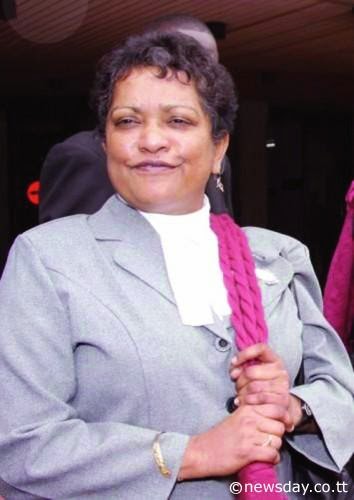Paths to equality for region
Paths to equality for region
By Alicia Bárcena
Latin America and the
Caribbean are at a crossroads. Historically the region has travelled a path
that is barely sustainable, with insufficient growth, high levels of
inequality, and little impulse toward structural change. And although the
region enjoyed an auspicious decade, today it confronts an increasingly
problematic external scenario.
Since 2002, poverty in Latin America dropped 15.7 percentage points on average.
Extreme poverty also fell 8.0 points, even though the pace of that decline is
waning. The unemployment rate reached a historic 6.4 per cent, and the
purchasing power of median salaries held steady or grew in most countries,
coinciding with low inflation, which descended to 5.4 per cent on average from
7.1 per cent between 2011 and 2012.
Nonetheless, in our region, the poorest quintile -- 20 per cent of homes with
the fewest resources -- receives an average five per cent of total income,
while the richest quintile gets 47 per cent.
To safeguard the social achievements made, and avert another period of
restrictions and shortages dictated by our cyclical destiny, we must promote a
new path of sustainable growth with increasing equality through revamped
institutional and political reforms.
The Economic Commission for Latin America and the Caribbean contends that
equality must be the fundamental guiding ethical principle and ultimate goal of
development, as we stated in our position paper, Time for Equality, presented
during the organisation’s biannual intergovernmental meeting -- held in 2010 in
Brasilia.
Placing equality at the centre implies a break with the economic paradigm that
has prevailed in the region for at least three decades. In view of our
continent, it emerges as a moral imperative. Our conviction is clear: We must
boost equality to grow and grow to boost equality.
It is not an easy road, but it can’t be put off. It requires a structural
change that would bridge critical social and productive gaps and ensure that
the economy, production, social gains, and environmental sustainability are not
at odds.
As we reaffirmed at our session in San Salvador in 2012, when we released a new
document, Structural Change for Equality, equality is the future; structural
change is the path, and politics, the instrument. This path requires a new
equation between the State, the market and society.
That implies a change in orientation in the face of external restrictions and
limiting endogenous factors. These restrictions include the loss of dynamism
and stagnation of demand within international trade, uncertainty over financial
signals and access to financing, and poor regional coordination in light of
shifting global production value chains.
The internal problems include an uncoordinated and lagging productive
structure, highly informal labour markets, low investment levels with little
incorporation of technical progress, gaps in general welfare and capacities,
weak governance of natural resources, consumption patterns with lacking public
services and high environmental and energy pressures, as well as a long-standing
institutional deficiency in terms of regulating, attracting and orienting
resources.
Today, we try to reorient policies toward a strong dynamism in investment to
ensure a virtuous relationship between growth, productivity and environmental
sustainability, incorporating knowledge into production and creating more value
added; making the world of work more inclusive, and promoting a greater
convergence between tax reforms and social policies with a clear redistributive
bias. Additionally, we must balance the expansion of private consumption with
the provision of quality public services, and properly manage our natural
resources.
We have no doubt -- and we will reaffirm this in our next session to be held in
Lima, next May -- that these proposals demand social pacts. Pacts that restore
sovereignty to Latin American and Caribbean people, give them the power to
strike agreements without tutelage, respecting the latticework that constitutes
the essence of our distinctive and rich identities, and forge a future in which
there will be no unfair barriers to exercising our rights and building our life
projects based on our birthplace, age, gender or ethnicity. In sum, a future of
equals.
• Alicia Bárcena Ibarra is the
executive secretary of the Economic
Commission for Latin
America and the Caribbean
( From the Trinidad Express)




Comments